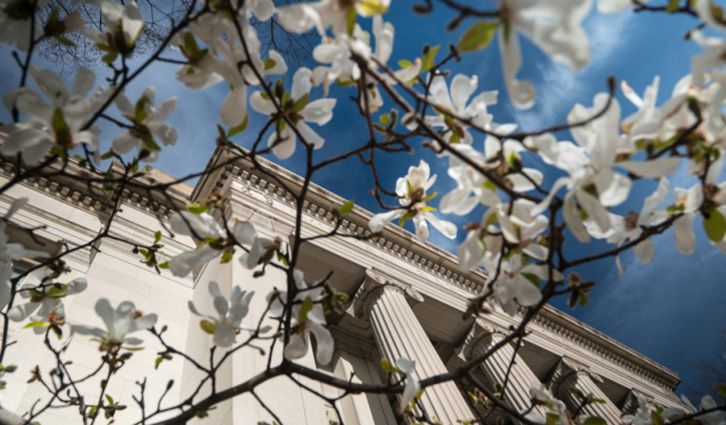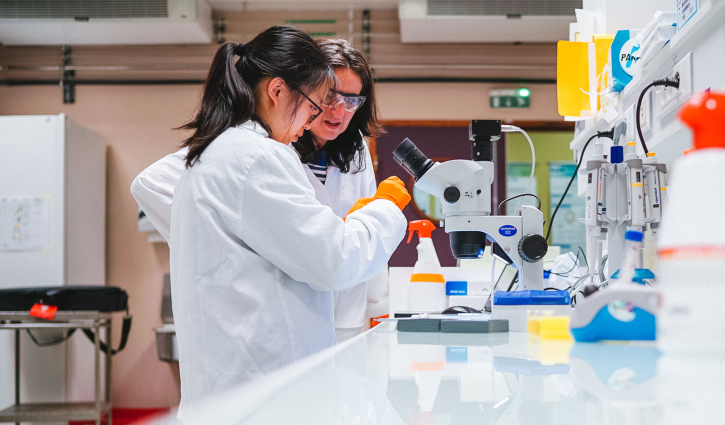Global Seed Funds Catalyze Research in 20+ Countries


Since launching in 2008, the MIT Global Seed Funds (GSF) program has awarded roughly $30 million to more than 1,300 high-impact faculty research projects across the world, spurring consequential collaborations on topics that include swine-fever vaccines, deforestation of the Amazon, the impact of “coral mucus” on the Japanese island of Okinawa, and the creation of an AI-driven STEM-education lab within Nigeria’s oldest university.
Administered by the MIT Center for International Studies (CIS) and open to MIT faculty and principal investigators, GSF boasts a unique funding structure consisting of both a general fund for unrestricted geographical use and more than 20 different specific funds for individual universities, regions and countries.
GSF projects often tackle critical challenges that require international solutions, culminating in patents, policy changes, and published papers in journals such as Nature and Science. Some faculty-led projects from this year include Professor Hugh Herr’s modular crutches for people with disabilities in Sierra Leone, Research Scientist Paolo Santi’s large-language models to predict energy consumption in grocery stores, and Professor Ernest Fraenkel’s development of mRNA therapies for the neurodegenerative disease Amyotrophic Lateral Sclerosis (ALS).
GSF assistant director Justin Leahey, who is managing director of the MIT-Germany and MIT-Switzerland Programs, says that GSF has expanded exponentially over the years, including most recently into the Czech Republic, Norway, Slovakia, and—starting in the fall of 2025—Hungary. This year there were a grand total of roughly 300 research proposals submitted for consideration, with many of the accepted proposals including the active participation of students at both the graduate and undergraduate level.

GSF’s long history of reaching across departments and borders has led to multiple meaningful academic collaborations that have since come to span continents—and decades.
Central to GSF’s work is “reciprocal exchange”—the concept of collaborators in and out of MIT sharing their work and exchanging ideas in an egalitarian way, rather than bringing a one-sided approach to different research challenges. Frequent collaborator Raffaella Gozzelino, a neurology researcher and principal investigator at NOVA Medical School in Portugal who works closely with MIT Professor of Biological Engineering Jacquin Niles, says that research is more impactful “when specialized knowledge integrates local realities and reveals potential solutions to national challenges,” and views the spirit of reciprocal exchange as something that revolves around “sharing knowledge and co-creating solutions that empower one another and build bridges across borders.”
For Cindy Xie ’24 MCP ’25, her master’s thesis emerged from the first-ever GSF-supported research internship in Cape Verde, where she worked with Niles and Gozzelino to explore the impact of climate change on anemia in the country of 500,000 people, focusing specifically on its largest island of Santiago. Xie says that she was struck by the intertwined intersectional nature of the issues of nutrition, climate, and infection in Santiago, home to the nation's capital city of Praia. For example, Xie and Gozzelino’s team found that respondents perceived a rise in costs of fresh produce over time, exacerbated by drought and unpredictable agricultural conditions, which in turn impacted existing nutritional deficiencies and increased residents’ susceptibility to mosquito-borne diseases.
“Though this multidisciplinary research lens is challenging in terms of actual project implementation, it was meaningful in that it generated insights and connections across fields that allow our research to be better contextualized within the experiences of the communities that it impacts,” Xie said.
Gozzelino says that it has been meaningful to witness how scientific research can transcend academic boundaries and generate real impact. She says that, by examining the effects of climate change on infectious diseases and nutrition in Cape Verde, the team will be able to build a framework that can directly inform public policy.
“Contributing to a project that underscores the importance of integrating scientific knowledge into decision-making will safeguard vulnerable populations and make them feel included in the society they belong,” Gozzelino says. “This collaboration has revealed the enormous potential of international partnerships to strengthen local research capacity and address global challenges.”
During her time in Cape Verde working with Xie and Gozzelino, Amulya Aluru '23, MEng '24 got to meet with 20 local officials and connect with new people in a wide range of roles across the country, helping her “recognize the power of interpersonal relationships and collaboration” in public health research. She says that the structure of the GSF grant gave her the unique experience of having mentors and coworkers in three different countries, spanning Cape Verde, the United States and Portugal.
Aluru says that this kind of cross-pollination “enabled me to strengthen my research with different perspectives and challenged me to approach my work in a way that I’d never done before, with a more global mindset.”
Xie similarly expresses her deep appreciation for the long-term relationships she has built through the project and the linkages between Santiago and Boston, which itself is home to one of the world’s largest Cape Verdean diasporas. “As a student, this was a valuable experience to inform the approaches to collaboration that I would like to implement in my own future work,” Xie says.
More broadly, Gozzelino sees GSF grants like the Cape Verde one as being not simply a vehicle for financial support, but “a catalyst for turning partnerships into long-term impactful collaborations, demonstrating how global networks can aid the development of human capital.”
GSF’s long history of reaching across departments and borders has led to multiple meaningful academic collaborations that have since come to span continents—and decades. In 2015 Professor Jörn Dunkel—an applied mathematician at MIT - kicked off work on a data-sharing repository for bacterial biofilms with the interdisciplinary German microbiologist Knut Drescher, then a professor of biophysics at Philipps-Universität Marburg in Germany. Dunkel and Drescher have since co-authored more than 15 papers together in publications like Nature Physics and Science Advances alongside their teams of graduate students and postdocs, even with Drescher having moved locations and crossed country lines to Switzerland as a faculty member at the University of Basel’s Biozentrum Center for Molecular Life Sciences.
“Our collaboration often creates great synergy by combining my team’s experiments with the theory from Jörn’s team,” says Drescher. “It is a great joy to see his perspective on the experimental systems we are working on. He is able to really understand and engage with experimental biological data, identifying patterns in seemingly distant biological systems.”
In explaining the CIS initiative’s success, Leahey points to the synergistic, academically eclectic, cross-disciplinary nature of the program. “[GSF] is a research fund that doesn’t ‘fund research’ in the conventional sense,” he says. “It seeds early-stage collaboration and lets people explore.”
Applications for MIT Global Seed Funds are now open with a deadline of December 16, 2025.